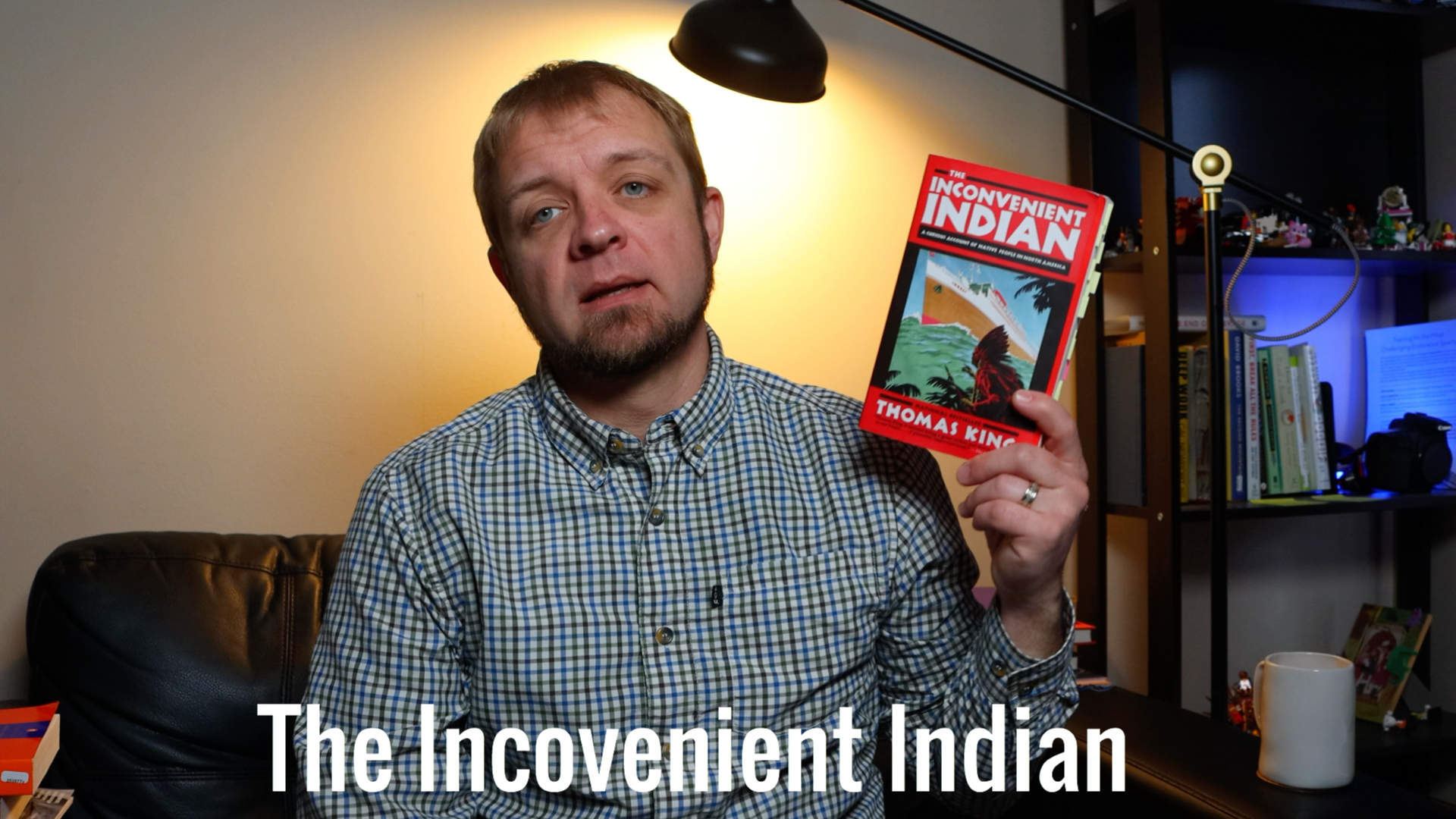The title of The Inconvenient Indian by Thomas King speaks well of the views that North American's have had, and continue to have about the First Nations that live next to us and with us. They're inconvenient because they don't conform to what colonial thought has brought us up to believe. King uses his unique style to walk readers through some of the many ways that Natives have been treated as a burden by those in authority on both sides of the United States and Canadian borders.
History may well be a series of stories we tell about the past, but the stories are not just any stories. They're not chosen by chance. By and large the stories are about famous men and celebrated events. We throw in a couple of exceptional women every now and then, not out of any need to recognize female eminence, but out of embarrassment.1
The "Perfect Indian" and the Dead Indian
North America defends democracy as the cornerstone of social, religious, and political enlightenment because it is obliged to think well of itself and its institutions.2
When I looked at Words Have a Past a theme throughout the book was how the newspapers of the Residential Schools continually depicted anything Native that didn't conform to colonial thought as bad. King shows this again throughout the history of dealing with Native peoples and through how much of our current dialogue around Natives is about their failure to conform after all these years of training in white ways3.
We're totally fine with the "perfect" Indian in Tonto4. The one that's loyal, safe, and most importantly conforms to colonial white views and in fact supports them. We're also happy with Natives as history because they're "dead" and we don't have to deal with them5.
What white people often hate is current Natives that have views that differ from capitalist colonial views. That may force us to examine ourselves and our views and change them. That may not allow us to do whatever we want because we'll have to take their views into account.
Government Ignore Treaties to Suit
When it comes to treaties between governments and Natives, King shows over and over again that Natives paid for the land many times6. Nothing was freely given in treaties, but it was paid for many times over with new treaties that changed things on Natives without their consent and in opposition to previous treaties.
When land that was protected for "all time" was found to have gold, the government did little to stop a gold rush and then said it was time for the Natives to give the land up in exchange for some money. When they didn't want the money, that was all they were offered and they lost the land. King shows that "for all time" usually means until white people feel you're making poor use of the land and that they know better and should take over stewardship of it. Of course once it's ruined through development Natives can have it back so they can rehabilitate it.
The only redress for Natives is through the courts, which have been designed to defeat them, but we call it justice7 because the laws conform to colonial thoughts about what's best.
Should You Read The Inconvenient Indian by Thomas King
Yup! Not only is it a great book to help inform you of the history of how Natives have been treated on both side of the United States and Canadian border, it's excellently written. King combines facts with humour and great insight bundled into single sentences in a way that made the entire book easy to read. Not just easy, pleasurable to read even as it dealt with hard topics of oppression and attempting to force a people to conform to behaviour and norms they simply don't want.
If you really want to dig into the Native experience in North America, make sure you work through the discussion guide at the end. If you give it honest attention you're going to have some hard questions to face, but they're worth it.
Purchase The Inconvenient Indian: Independent Bookstore | Amazon
